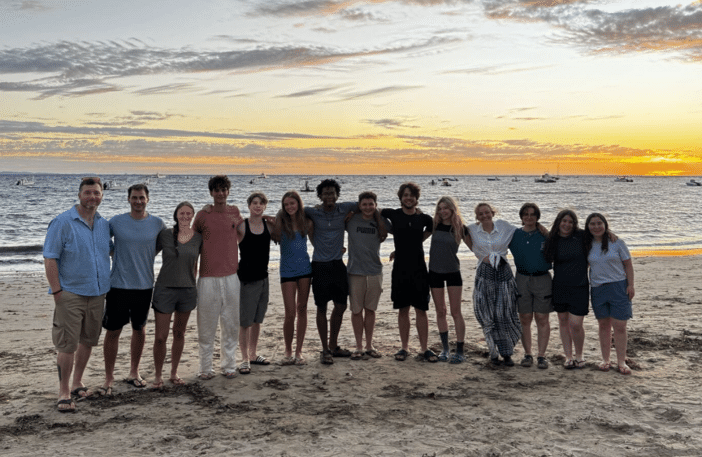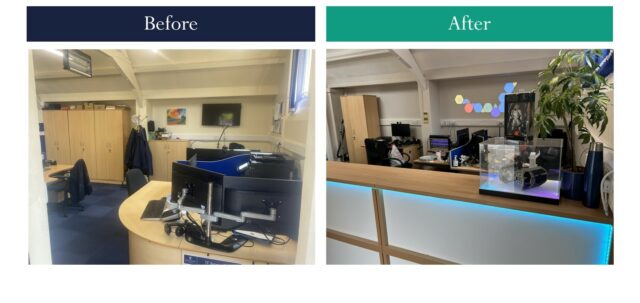The expedition began with an early morning departure from Epsom College and a long journey via Gatwick to Madagascar, including a delayed flight and a frantic airport dash to catch the connecting flight to Antananarivo.
Upon arrival, the group was met by their local guide and transferred to Hotel Chez Jeanne for rest. Despite a few missing bags, which arrived the next day, spirits remained high. The group spent a day recovering before embarking on a long bus journey north, stopping for lunch in Mavetanana and eventually reaching Hotel Kamoro in Ambondromamy – the last night of comfort before heading into the field.
The next leg of the journey involved a challenging drive to Mariarano Camp, with the final stretch requiring 4×4 vehicles due to deteriorating road conditions. At camp, students settled into tents and adjusted quickly to basic facilities like bucket showers and long-drop toilets. The first evening included a welcome lecture and a night hike to observe local wildlife, including lemurs, spiders, and reptiles. Over the following days, students participated in a range of biodiversity surveys: mist netting birds, tracking lemurs and herpetofauna, sampling spiders, and studying forest structure and bird calls. These activities were supported by lectures on Madagascar’s biodiversity, evolution, and endemic species.
Students also visited the local medical clinic to learn about healthcare in the region. After several days of surveys, the group hiked to Matsedroy Camp, with their gear transported by zebu cart. Here, they continued their research, including a memorable butterfly survey and evening hunts for the elusive ghost spider. Lectures explored the cultural and historical context of conservation in Madagascar, and the group enjoyed a screening of School of Rock for a bit of fun.
After a final morning of surveys, the group returned to Mariarano Camp and then travelled back to Hotel Kamoro for a much-needed shower and rest. The next day involved a long drive back to Antananarivo, followed by a flight to Nosy Be for the marine phase of the expedition. At the marine site, qualified divers completed check dives while new divers began training. Lectures covered coral anatomy, reef ecosystems, and fish identification, and evenings included games and movie nights.
Marine surveys continued with coral and benthic quadrat dives, and students contributed to the citizen science initiative Coral Watch, collecting data on coral bleaching. A catamaran trip to Nosy Tanikely offered stunning reef views and a final dive for newly qualified divers. A beach cleanup removed five sacks of rubbish, and students presented group projects on invasive species and pollution, cheered on by local zebus. The expedition concluded with a celebratory dinner and a relaxed final morning before flying home.
The trip was a resounding success, thanks to the tireless support of Alex and Lynsey Buhagiar, the enthusiasm of the students, and the inspiring work of the OpWall staff, volunteers, guides and locals. Everyone returned home tired but fulfilled, having gained unforgettable experiences and a deeper understanding of conservation in Madagascar.





